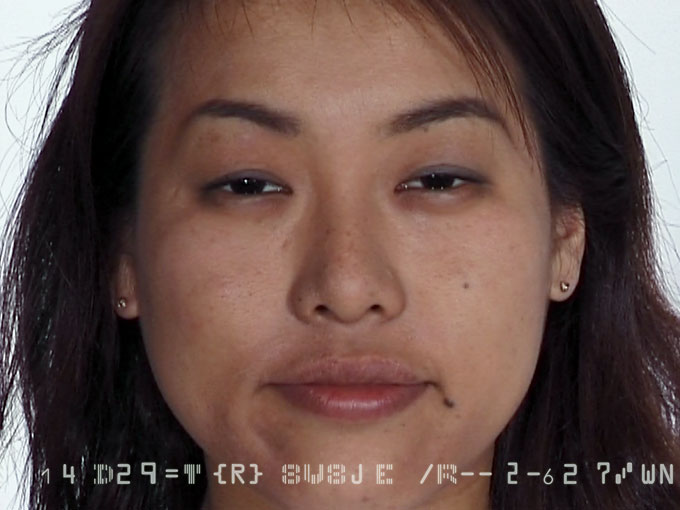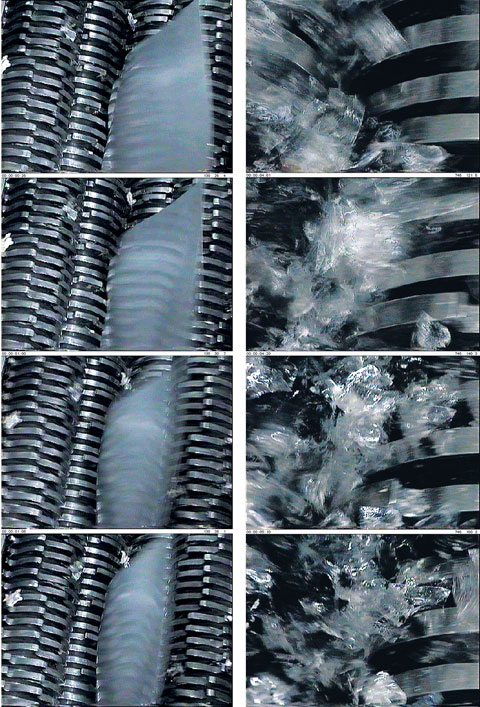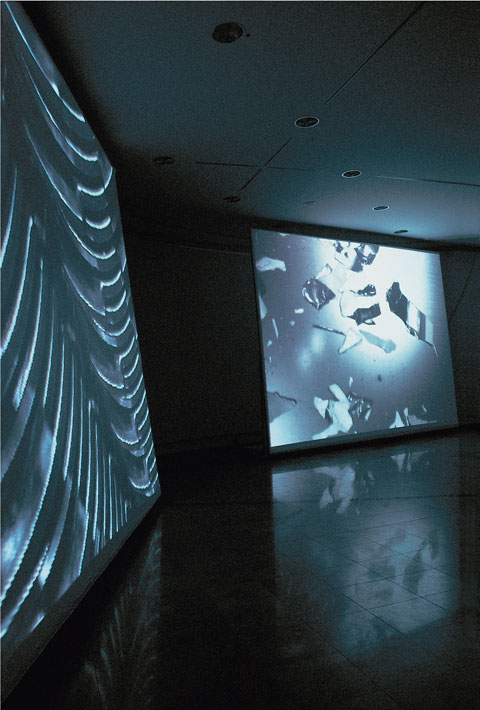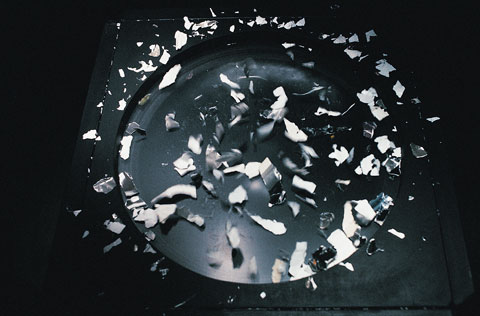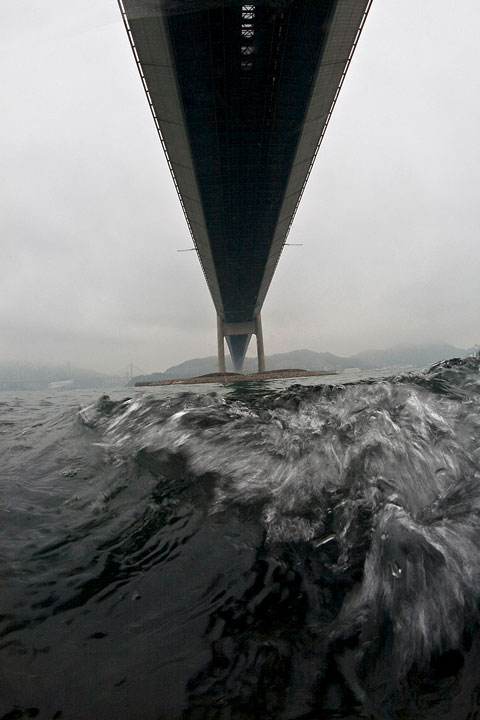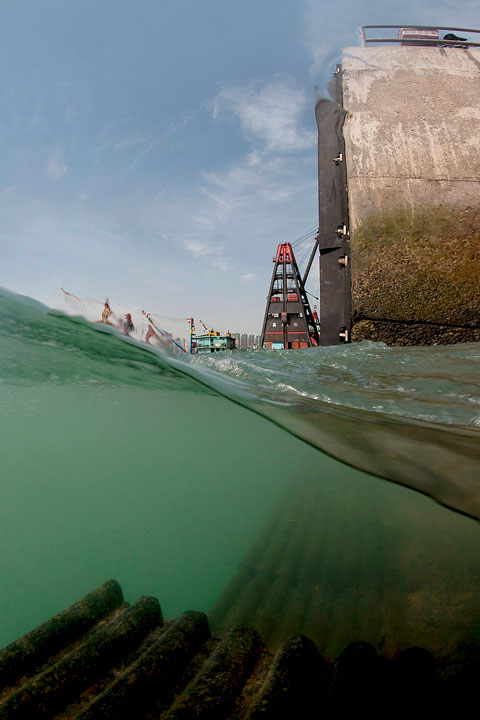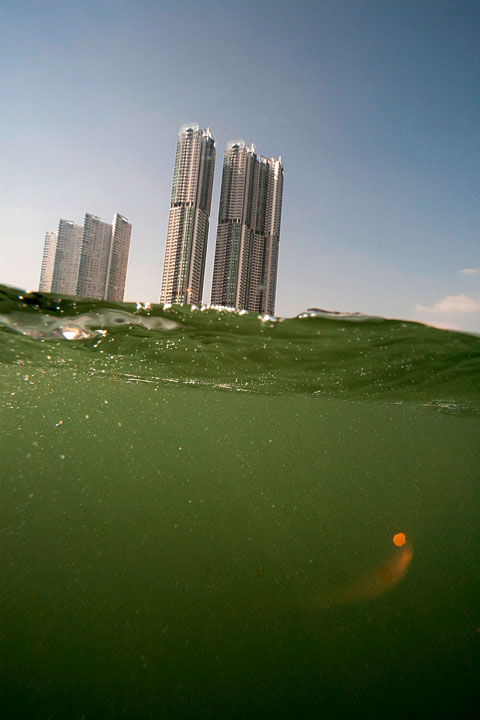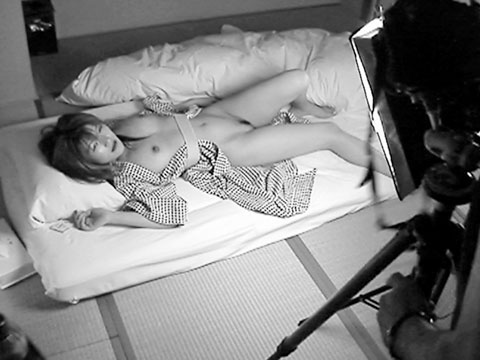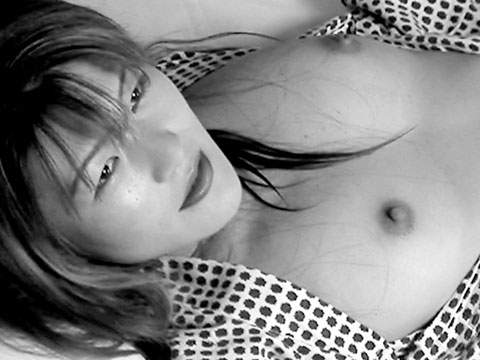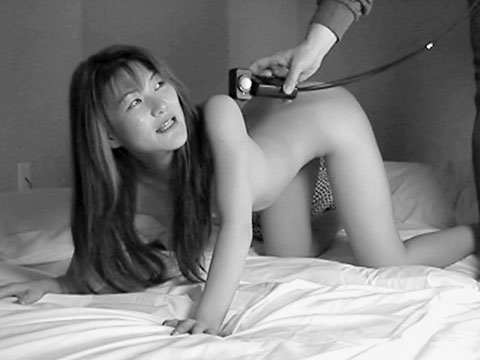andreas müller-pohle in person
video works
Friday, 17 February 2012
19:00
[DL8]
The 8th Berlin International Directors Lounge, 2012
Naherholung Sternchen
Berolinastraße 7
10178 Berlin ⁄ Mitte
Directors Lounge presents the first theater screening with Andreas Müller-Pohle, widely known as a photographer and editor of European Photography, featuring a whole range of his video work.
Water would seem to play an important role in Andreas Müller-Pohle's recent work, both in film and photography. It may also be a key for interpreting his work as a whole. In the case of Hong Kong Waters — the Asian metropolis is surrounded by water on three sides, the South China Sea and the Perl River Delta — the waters inspired a number of photo, video and sound works. "Dark Waves", "Zig Zag" and "Coasting" were conceived in Hong Kong. "First of all, the water has to be surpassed in order to move around the city," Müller-Pohle told me, and water embodies both dangers and chances for the city. The rising sea level, due to climate change, will put the city under threat. Large parts of the urban area have been reclaimed from the sea and will be in danger. However, the sea has also given the city a good trading position and a strategic importance.
Water is also connected with entropy — all waters reach the sea, where minerals and polluting substances are diluted and collected — and with chance operations: two more key words in Müller-Pohle's philosophy of art. By spinning a camera around in the surf, as done in "Coasting", the moving image becomes dependent on the chance operation of those movements of the surf that make all objects round over time. In addition, the freely moving camera protected by a waterproof housing makes an interesting human-machine interface: avoiding the common code of human-camera interaction of striking a pose.
Changing the human-machine interaction, or changing the codes of how to perceive still and moving image by shifting slightly away from the ordinary, is part of the artist's strategies for communicating with his art. In the video "Entropia", the first one showing in the screening program, the videographer observes an industrial shredder fed (by the artist) with all kinds of photographic waste — prints, framed pictures, lith film, etc. — which is normally thrown away. Dating from 1996, the movie becomes a metaphor for the disappearance of analogue photography. Furthermore, it is a disturbing image, as here "the machine" normally destined to produce "goods from raw material" now works in the opposite way: it does the destructive work of inanimate nature and time, only much faster, changing everything back into unshaped raw material. "Un-informed raw materials", Vilém Flusser would call it.
Now we fall into the waters of the post-modern media philosopher, and it is no wonder this should happen when trying to interpret Andreas Müller-Pohle's work: it is his merit to have first published the writings of Flusser in German. "Towards a Philosophy of Photography", published by European Photography in 1983 and translated into 25 languages so far, became a ground-breaking contribution to the international debate on photography and the digital media.
A very different work in the program is "Araki at Work", shot in 1996 in Japan, but first published in 2011, a few months ago. Here, Müller-Pohle is the documentary photographer with a small un-intrusive camera, and driven by his interest in documenting the creative process of an artist. Araki, well-known as a provocative and commercial photographer, seems to surpass limits of privacy when working, especially seen from a European perspective. However, the film also reflects and produces the strange relations between "observer and observed", the settings in which the photographer worked with a model. As the video possibly takes the viewer to the limits of "moral habits", without being pornographic or offensive, the viewer becomes the observer of the observer, maybe even reflecting back on his or her own position as spectator, or voyeur.
The program will include a discussion with Andreas Müller-Pohle. We thus expect an extraordinary evening that will be an eye- and ear-opener. And brains.
(Text Klaus W. Eisenlohr)
Programme:
• Entropia, SV 6 min 1996
• Hiroshima, SV 29/3/01 3 min 2002
• Dark Waves, SV 2 min 2011
• Zigzag 8 min 19 2011
• Coasting 9 min 40 2011
• Yumiko 8 min, looped 2002
• Discussion with audience, moderated by K. W. Eisenlohr
• Araki at Work, SV 12 min 1996/2011
*SV: gekürzte Screening-Version
Links:
Directors Lounge Program:
http://berlinlounge.tumblr.com/post/16504056609/andreas-muller-pohle-in-person
Directors Lounge Festival Program:
http://berlinlounge.tumblr.com/
Artist Links:
Andreas Müller-Pohle
http://www.muellerpohle.net/
Equivalence
http://equivalence.com
European Photography:
http://equivalence.com/pavillon/pav_ep_info.shtml
Current exhibition (Febr. 2012):
"flow flow" at
http://www.photoeditionberlin.com/
 Back Back
|
